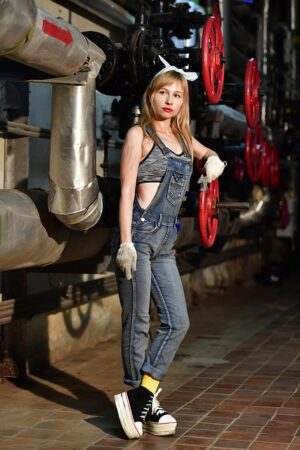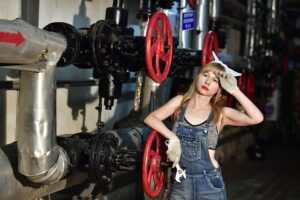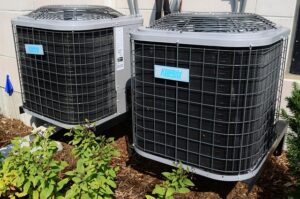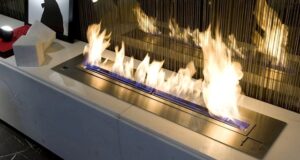Industrial unit heaters, available in gas fired, electric, and suspended types, are vital for efficient warehouse heating and commercial heating. They boast advanced safety features like integrated safety shut-off mechanisms, ensuring worker protection. Forced air systems deliver precise BTU ratings, maintaining productivity in manufacturing facilities. Modern heaters' safety mechanisms, including temperature, pressure, or flame detection, prevent accidents, making them crucial for high-intensity industrial applications. Regular cleaning, inspection, and part replacement ensure optimal performance, while proper installation and understanding BTU ratings enhance efficiency in demanding commercial environments.
“Industrial unit heaters are indispensable components across diverse sectors, offering targeted heating solutions. However, safety shouldn’t be an afterthought. This article delves into the critical role of integrated safety shut-off features in these heaters, essential for mitigating risks. We explore various types of safety systems, their mechanisms, and the numerous advantages they bring to industrial operations. Furthermore, best practices for maintenance and operation are highlighted, ensuring safe and efficient heating across diverse industrial applications.”
- Understanding Industrial Unit Heaters: Essential Equipment for Various Industries
- The Significance of Safety Shut-Off Features in Industrial Heating Systems
- Types and Mechanisms of Integrated Safety Shut-Off Systems
- Benefits of Implementing Advanced Safety Measures in Unit Heaters
- Best Practices for Maintenance and Operation to Ensure Safe Heating Operations
Understanding Industrial Unit Heaters: Essential Equipment for Various Industries
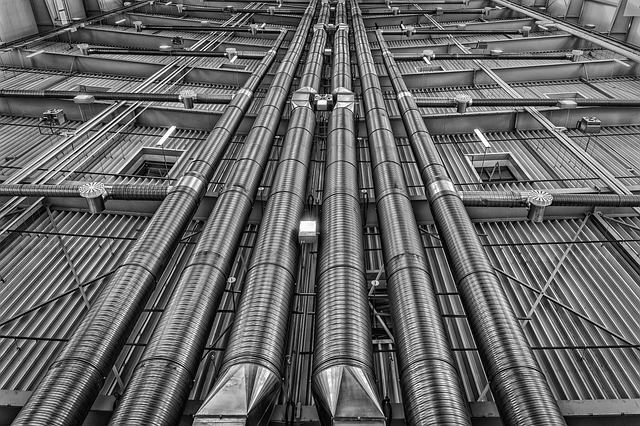
Industrial unit heaters are essential pieces of equipment used across a wide range of industries, from manufacturing facilities to heavy-duty construction sites. These powerful heating solutions come in various types, such as gas fired heaters, electric unit heaters, and suspended heaters, each designed for specific industrial applications. They offer efficient and effective warehouse heating and commercial heating, ensuring optimal working conditions in often harsh environments.
The versatility of these heaters is matched only by their advanced safety features, particularly the integrated safety shut-off mechanisms. These are crucial for mitigating risks associated with potential hazards like excessive temperature or malfunction. With forced air heating systems delivering precise BTU ratings, industrial unit heaters play a vital role in maintaining productivity and worker comfort in manufacturing facilities and other demanding industrial settings.
The Significance of Safety Shut-Off Features in Industrial Heating Systems

In the realm of industrial heating systems, safety is paramount, especially in environments like warehouse heating and manufacturing facilities. Traditional heaters often lack robust safety mechanisms, leaving them prone to accidents caused by sudden malfunctions or excessive heat buildup. However, modern industrial unit heaters with integrated safety shut-off features offer a game-changing solution. These advanced systems are designed to automatically terminate operation when certain conditions are met, such as abnormal temperature levels or gas leaks, preventing potential disasters and saving lives in the event of an emergency.
The inclusion of these safety features is particularly crucial for gas fired heaters and electric unit heaters, which are commonly employed in commercial heating and industrial applications. With suspended heaters and forced air heating systems, heavy-duty construction and high BTU ratings come with increased risks. By employing these safety shut-off features, operators can ensure optimal efficiency while minimizing the risk of hazardous situations, making them indispensable for maintaining a safe and productive work environment in manufacturing facilities and other industrial settings.
Types and Mechanisms of Integrated Safety Shut-Off Systems
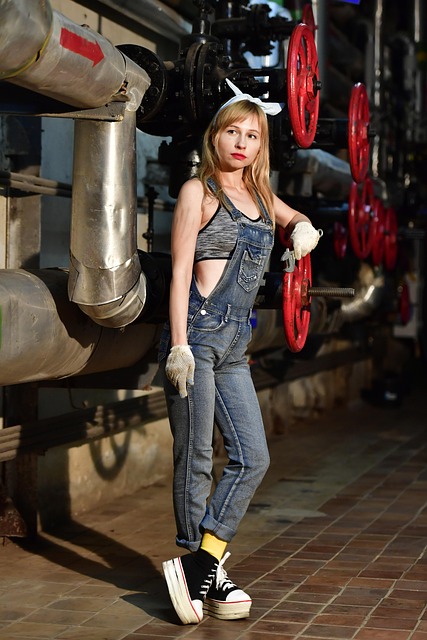
Industrial unit heaters designed for commercial and industrial applications often come equipped with advanced safety features, particularly integrated shut-off mechanisms. These systems are crucial for protecting workers and facilities from potential hazards associated with heating equipment. There are several types of safety shut-off systems available, each employing different mechanisms to ensure prompt action in case of an emergency.
One common approach is the use of temperature sensors that monitor the heater’s surroundings. If a predefined threshold is exceeded, the sensor triggers a shut-off command. Another method involves pressure or flame detection, where sensors detect any abnormal conditions, such as a loss of pressure in gas-fired heaters or the absence of a flame, automatically halting operation to prevent potential explosions or fires. In manufacturing facilities and warehouses relying on forced air heating like suspended heaters, these safety systems can be vital, considering the high BTU ratings of industrial unit heaters used for heavy-duty construction and commercial heating applications.
Benefits of Implementing Advanced Safety Measures in Unit Heaters

Implementing advanced safety measures in industrial unit heaters offers a multitude of benefits for businesses operating in demanding commercial and manufacturing environments. These features are designed to prevent accidents, protect employees, and minimize damage to equipment—all crucial aspects of maintaining a safe and efficient workplace, especially in large warehouse heating or manufacturing facilities. With high-intensity tasks and potential hazards inherent in many industrial applications, having reliable safety mechanisms integrated into heaters ensures uninterrupted operations without compromising safety.
Advanced safety shut-off features can detect various hazardous conditions, such as excessive temperature, pressure buildup, or gas leaks, common in the use of gas fired heaters or electric unit heaters. These systems swiftly respond by shutting off the heater, preventing potential explosions, fires, or equipment malfunctions. Such proactive measures not only save lives but also significantly reduce downtime and maintenance costs associated with accidents. In heavy-duty constructions like suspended heaters or those using forced air heating, these safety features are particularly vital, ensuring operations remain smooth, efficient, and secure across diverse industrial settings.
Best Practices for Maintenance and Operation to Ensure Safe Heating Operations
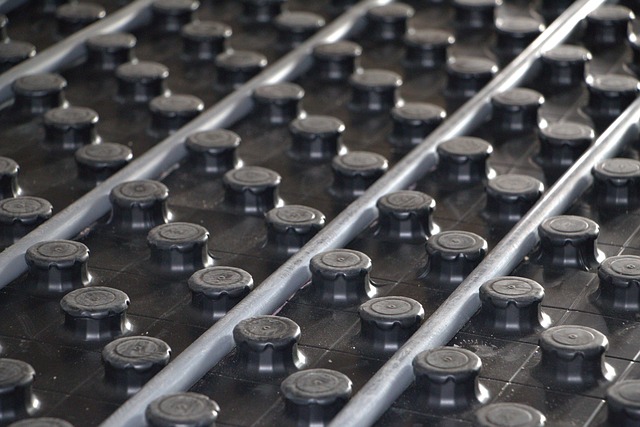
Maintaining industrial unit heaters requires a consistent and proactive approach to ensure safe heating operations within manufacturing facilities and warehouses. Regular cleaning and inspection are paramount, as buildup of dust or debris can affect performance and safety. This includes checking for any damage or wear on components like coils, fans, and safety sensors. Replacing worn parts promptly is essential to prevent potential failures during operation.
Additionally, proper installation and placement are critical factors. Suspended heaters should be secured correctly, while forced air heating systems need adequate space for airflow. Understanding the BTU ratings of gas fired heaters or electric unit heaters ensures they’re suited for the square footage of your industrial application. Heavy-duty construction is key to enduring demanding commercial heating environments, safeguarding both equipment and personnel in various industrial applications.
Industrial unit heaters with integrated safety shut-off features are not just advanced equipment, but essential for minimizing risks in various industries. By understanding the importance of safety shut-off mechanisms and implementing best practices during maintenance and operation, businesses can ensure efficient and secure heating processes. These measures significantly enhance workplace safety, making industrial unit heaters reliable game changers in today’s demanding environments.



